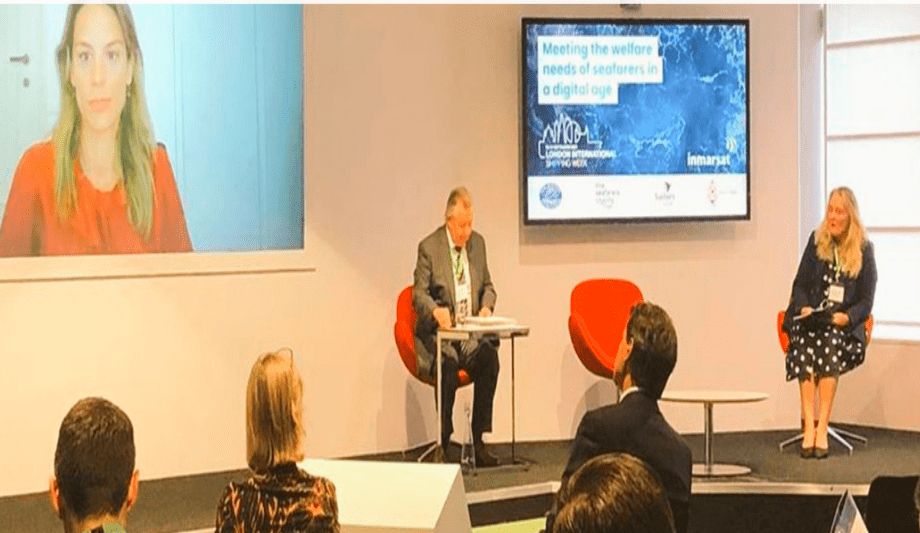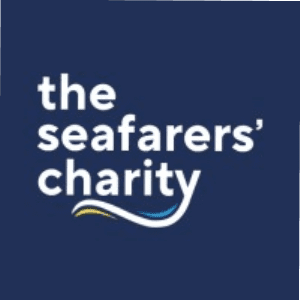As part of London International Shipping Week 2021, The Seafarers’ Charity, alongside The Mission to Seafarers, Sailors’ Society and Stella Maris organised a conference on 13 September, to explore seafarers’ wellbeing in a digital age.
Hosted by satellite communications firm, Inmarsat and admirably chaired by John Adams, Managing Director, V. Ships UK, the event had 250 participants, joining both virtually and in person and a panel of experts from across the industry who explored the welfare issues faced by seafarers during the pandemic and whether the digital solutions put in place were effective.
In his welcome, John Adams highlighted that the pandemic had hugely exacerbated existing challenges that seafarers can face, including poor mental health, loneliness, fatigue and lack of shore leave.
Challenges to the crew
He emphasised the need to take steps to safeguard our seafarers - and safeguard the future of the industry
“Issues such as fatigue, feelings of isolation and abandonment all existed pre-COVID, but now we can magnify them by power of ten.”
“The crew change crisis, difficulties with accessing vaccination facilities and constantly changing rules and regulations during the pandemic have impacted massively,” stated John Adams the Managing Director, V Ships Ltd. John talked of a case where there had been a death onboard, but the crew were unable to repatriate the body for three months as they were not allowed to disembark at the ports they were visiting. He emphasised the need to take steps to safeguard our seafarers - and safeguard the future of the industry.
Cases of mental health
Several speakers also talked of cases of mental health and depression, quoting stats from a number of reports including the Yale study which found that 14% of seafarers were suffering from depression and The Mission to Seafarers’ happiness index reducing from 6.46% in Q1 to below 6%.
He raised the call for a united voice, echoed by others, to ensure safety and wellbeing
There were also some extremely sad cases where seafarers had taken their own life, including that of a promising young seafarer who had previously indicated no sign of illness but committed suicide following receiving bad news from home. The conference also featured a keynote speech from Dr Grahaeme Henderson OBE, Chair, Together in Safety, who highlighted that 75% of accidents are caused by human error. He raised the call for a united voice, echoed by others, to ensure safety and wellbeing were provided as standard.
Wellbeing and safety
“As an industry we can do much more about peoples’ wellbeing and safety. For every ship, every company, crew member and their family and children, we can be together in safety,” stated Dr. Grahaeme Henderson, Chair Of Together In Safety.
The four charities spoke of how they have adapted their services to the current need with digital initiatives such as The Mission to Seafarers’ Chat to a Chaplain (funded by The Seafarers' Charity), Sailors’ Society’s blended Wellness at Sea Awareness Campaign, Stella Maris and ISWAN’s work with the Isle of Man Ship Registry on the Crew Matters app, as well as making emergency funds available, for example, through the Seafarers International Relief Fund (SIRF) managed by The Seafarers’ Charity.
Adapting their services
Catherine Spencer, CEO, The Seafarers’ Charity, said, “We’ve been working very hard to help our delivery partners to extend and adapt their services during the pandemic and released an additional £2m in emergency funding.”
“In May this year, together with other leading maritime welfare charities and shipping industry players, we launched SIRF which has been a superb example of collaborative work across the maritime charity sector.”
“When the pandemic crisis in India became severe, we realised we needed a humanitarian response and gave out over $1.1 million in a very short amount of time.”
An essential right
Key points raised were that the industry has yet to fully solve the crew change crisis
Key points raised were that the industry has yet to fully solve the crew change crisis and that there's still a real need to solve the ongoing issue of access to Wi-Fi.
Connectivity was viewed an essential right to which seafarers should have access to, yet, according to a study by Nautilus International, only 57% of seafarers have access to satellite phones and personal emails and only 6% have video calling facilities. On the other hand, all of the charities recognised that while there's great value in digital support, it's vital that it runs alongside the more traditional and face-to-face welfare services - crew really value meeting with chaplains and ship visitors in person.
Extending care and support
The charities and speakers also raised the vital role that seafarers’ families play and the importance of extending care and support to families and the wider seafaring community, including shore staff.
Overall, one key message from the conference is that charities are key frontline sources of information and support in the maritime space and that they should be better listened to.













